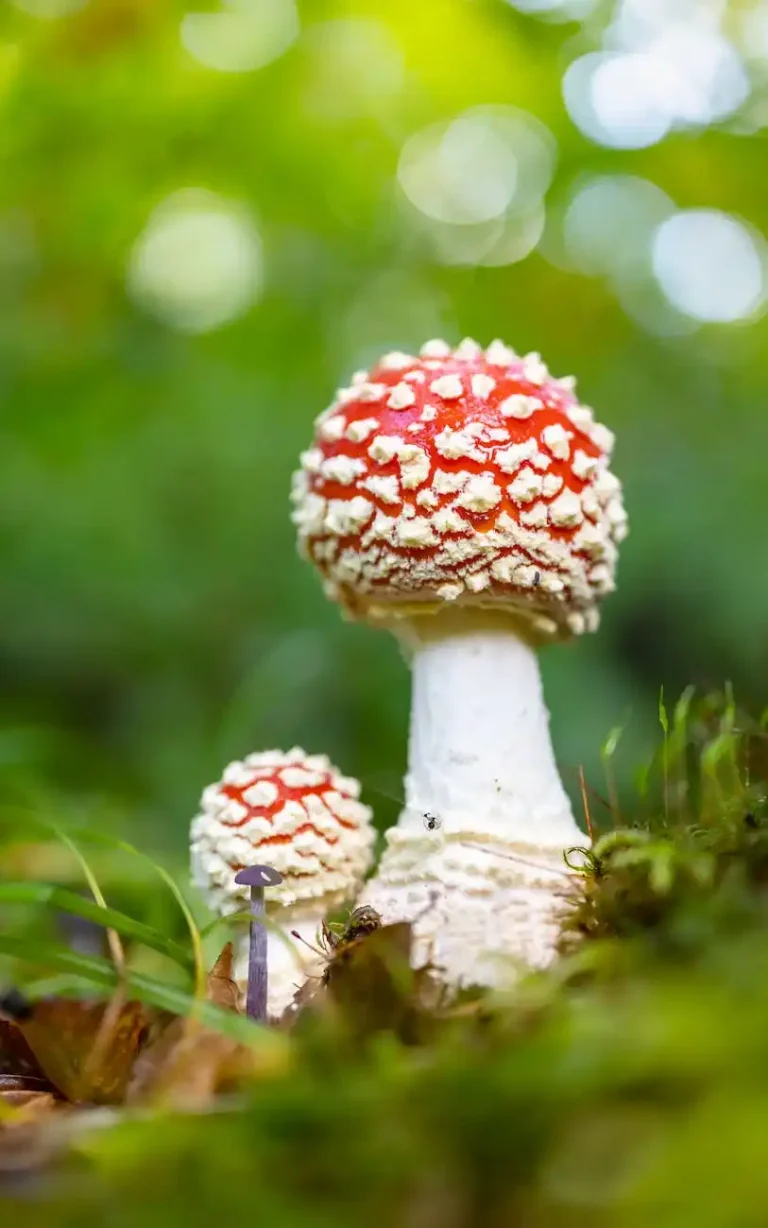A Ray of Hope for Depression?
There is research on the potential therapeutic benefits of psychedelics in the treatment of depression. Traditionally associated recreational use, substances like psilocybin (found in magic mushrooms), LSD, and MDMA are now being investigated for their ability to treat depression.
Psychedelic drugs are substances that have a range of psychological effects on users, such as changing sensory perceptions, thought processes, and energy levels or mood. Some occur naturally (in some plants and fungi) while others are synthesised in laboratories. The common feature of all these drugs is that they act on receptors in the central nervous system.
Depression is a complex and debilitating mental health condition that affects millions of people worldwide. Traditional treatments such as antidepressant medications and psychotherapy are effective but there are some who have treatment resistant depression or intolerable side effects of medication. There is particular interest as to whether psychedelic drugs can have a therapeutic role for these people as current clinical trials suggest that these can be effective where other treatments have failed.
Depression effects over 14% of the adult population in high income countries (1 in 6 in Great Britain.)
There is now a focus on understanding the therapeutic effects of substances like psilocybin, LSD, and MDMA. Independent government advisers have called for rule changes to allow more research into therapeutic uses of illegal drugs, including psychedelics and The Advisory Council on the Misuse of Drugs proposes easing controls on trials using Schedule 1 drugs – which include opium and LSD. This is because recent studies have found psychedelics could help treat severe depression.
Currently, the ACMD found the process of applying for a licence to use Schedule 1 drugs like psilocybin in scientific trials can take a year and tough rules and extensive paperwork mean only major, well-funded studies can carry out clinical trials. If granted, licences are valid only for three months – which is often insufficient for organising shipments of drugs and managing paperwork.
Psilocybin is the active compound in magic mushrooms. A small study in 2016 in 20 people with treatment-resistant depression reported that a single trip with psilocybin decreased their symptoms of depression after two doses of psilocybin. This was replicated in two double-blind studies in patients with cancer in comparison to placebo. Researchers have since conducted several further studies to determine whether psilocybin is safe and to characterise adverse effects, for which conditions they may be effective, and at what dose.
There have been further studies comparing psilocybin with current licensed antidepressants and these have shown that psilocybin is as effective as traditional antidepressants. The remission of symptoms is also effective over twelve months in some studies.
There are adverse effects such as headache and nausea.
Ketamine has been studied for the treatment of depression. Esketamine, a form of ketamine, was approved for the treatment of depression by the US Food and Drugs Administration as long ago as 2019. There is little long-term data on Esketamine and the possible risks. NICE completed an evaluation of the use of esketamine for treating major depression in adults at imminent risk of suicide but did not receive the evidence required to create a recommendation. However, there was a comment that, those who had three antidepressants with or without another treatment, esketamine with an SSRI or an SNRI (two other classes of antidepressants) is more effective but the long-term benefits of esketamine are not clear.
There are studies that found LSD may enhance emotional empathy and improve mood by altering perception and cognition.
MDMA, commonly known as ecstasy, is considered effective in treating post-traumatic stress disorder (PTSD) and, indirectly, depression. MDMA-assisted psychotherapy is administered in a controlled environment, fostering trust and empathy between therapists and patients.
In 2019, Imperial College launched the first formal centre for psychedelic research in the world with £3,000,000 funding from five founding philanthropic donors.
In 2022, a partnership between the Institute for Psychiatry, Psychology and Neuroscience and South London NHS Foundation Trust, alongside the healthcare company COMPASS Pathways, was launched to investigate the use of psychedelics for treatment-resistant depression.
Professor David Nutt, who is Head of Imperial College’s Centre for Psychedelic Research, has previously written that the perceived dangers about possession and use of psychedelic drugs have led to the unfortunate outcome that research into the possible benefits of these drugs clinically is now almost impossible.
A qualitative study conducted amongst researchers using Schedule 1 drugs in the UK found that there was a perception of a lack of scientific understanding amongst decision-makers involved in the scheduling of psychedelic drugs. A similar discussion has taken place in the US, with proponents of the use of psychedelics for mental health conditions arguing that federal funds should be made available for research.
While the preliminary findings are promising, psychedelic research faces numerous challenges, including regulatory hurdles and societal stigmas. Additionally, the long-term effects and potential risks associated with psychedelic use require thorough examination. Ongoing research is essential to establish safety protocols, determine optimal dosages, and identify the most suitable candidates for psychedelic-assisted therapies.
There is optimism for other treatments for treatment-resistant depression. Psychedelic-assisted therapies may open new avenues for the treatment of depression.

